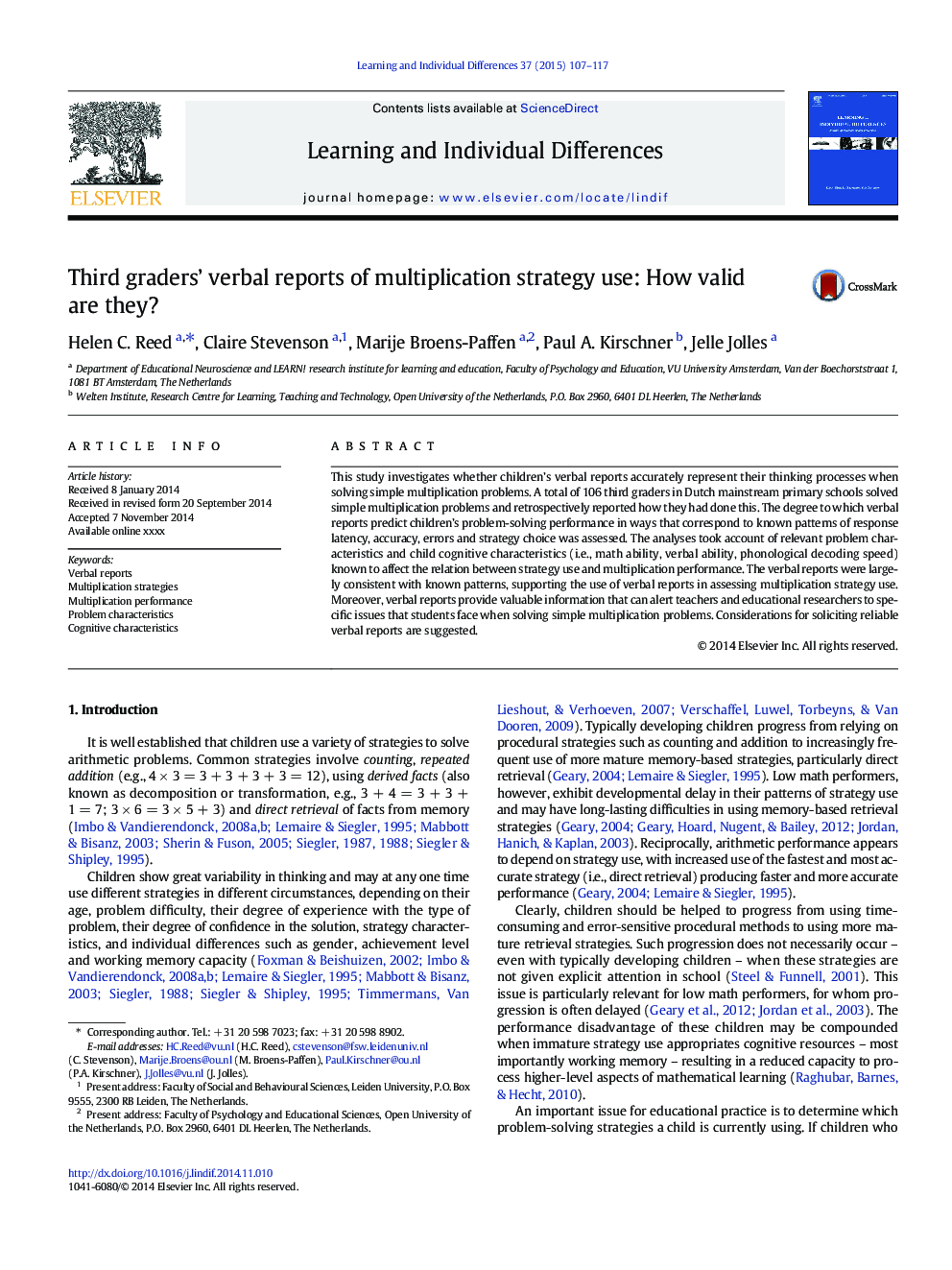| Article ID | Journal | Published Year | Pages | File Type |
|---|---|---|---|---|
| 6844914 | Learning and Individual Differences | 2015 | 11 Pages |
Abstract
This study investigates whether children's verbal reports accurately represent their thinking processes when solving simple multiplication problems. A total of 106 third graders in Dutch mainstream primary schools solved simple multiplication problems and retrospectively reported how they had done this. The degree to which verbal reports predict children's problem-solving performance in ways that correspond to known patterns of response latency, accuracy, errors and strategy choice was assessed. The analyses took account of relevant problem characteristics and child cognitive characteristics (i.e., math ability, verbal ability, phonological decoding speed) known to affect the relation between strategy use and multiplication performance. The verbal reports were largely consistent with known patterns, supporting the use of verbal reports in assessing multiplication strategy use. Moreover, verbal reports provide valuable information that can alert teachers and educational researchers to specific issues that students face when solving simple multiplication problems. Considerations for soliciting reliable verbal reports are suggested.
Related Topics
Social Sciences and Humanities
Psychology
Developmental and Educational Psychology
Authors
Helen C. Reed, Claire Stevenson, Marije Broens-Paffen, Paul A. Kirschner, Jelle Jolles,
